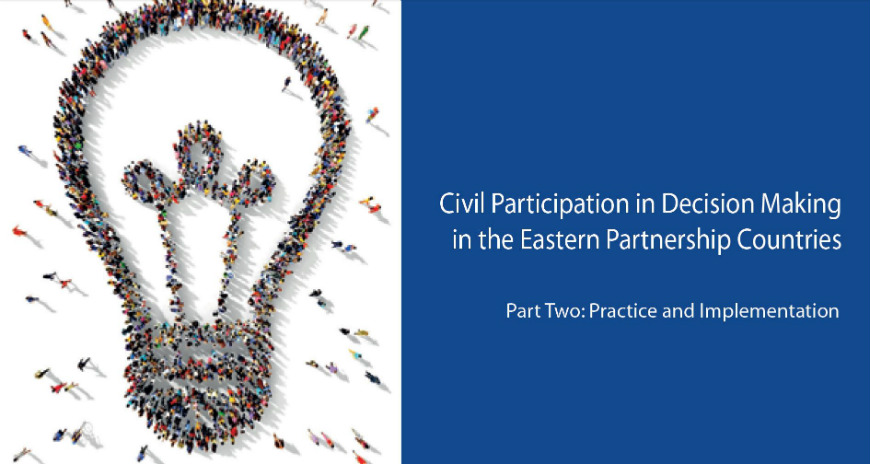A new study on "Civil Participation in Decision Making in the Eastern Partnership Countries Part II: Practice and Implementation" has just been published. It contains 24 case studies from Armenia, Azerbaijan, Georgia, Republic of Moldova, Ukraine and Belarus, and includes a set of recommendations for each country, lessons learned for the Eastern Partnership region and a regional strategy.
Analysts from the six countries examine the extent to which laws and policies are applied and implemented. The authors first assess to what extent the statutory procedures have been followed in the policy-making cycle in recent years, and then look case studies in each country to examine in detail how participatory policymaking is working in practice. This study follows the first study “Civil Participation in Political Decision-Making in the Eastern Partnership Countries – Part I: Laws and Policies”, which charted the laws and policies that provide the framework for civil participation in political decision-making in each of the six countries. The challenges and opportunities may differ, but all six countries face shortcomings in the clarity, effectiveness, and inclusiveness of their policy-drafting and evaluation procedures.
These publications are part of the Partnership for Good Governance project “Civil society participation in decision-making in the region” which is reinforcing regional cooperation, improving the environment for the functioning of NGOs, creating mechanisms for their active participation and promoting a culture of civil participation in Eastern Partnership countries. Realising more fully the potential of such kind of action and achieving sustainable results requires longer-term, on-going efforts with all Partnership for Good Governance projects.
A launching event will take place during the conference “Partnership for Good Governance: enhancing the co-operation with civil society” on 2 June 2017 at the Council of Europe, Strasbourg.
For more infomation contact the project team
Civil Participation in decision making in EaP countries Part I: Laws and Policies
Civil Participation in Decision Making in the Eastern Partnership Countries Part II: Practice and Implementation
Measures for strategic development of civil participation in decision making

